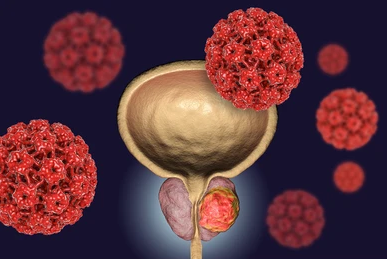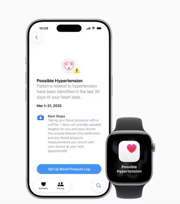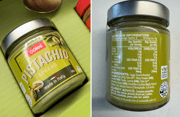Life-Saving Breakthrough: Prostate Cancer Drug Now Available to Aussies on the PBS!
By
- Replies 3
When it comes to healthcare, Australians are fortunate to have access to many treatments and medications through the Pharmaceutical Benefits Scheme (PBS).
This hugely valuable service helps many Aussies manage their healthcare budgets.
Given this, we here at the SDC were thrilled to hear that from June, men fighting metastatic hormone-sensitive prostate cancer can now get their hands on a potentially life-saving drug on the PBS: Erlyand (apalutamide).
This drug previously cost prostate cancer patients approximately $40,000 a year, and treatments for men with this specific cancer can cost even more.
Access to this treatment on PBS is great news as it will relieve families from the exorbitant financial burden of this serious disease.

It's important to step back and look at the bigger picture for a moment, too. As of 2022, two out of three men with stage four prostate cancer do not survive.
That's why Erlyand (apalutamide) is so important; its proven effectiveness can help to boost survival rates for men with advanced prostate cancer.
Take, for example, the case of Graham Oldfield. He recently recalled his experience with the disease, saying he'd noticed a swollen lymph node – which was the only warning sign he had that he had prostate cancer.
He shared: ‘He did a biopsy and found one half of the prostate was destroyed by cancer, and it also spread through my body... through my lymphatic system, it is in my spine, it is in my lung.’
As a result, Graham was prescribed different medications – including Erlyand (apalutamide), which worked better than the others and had fewer unwanted side effects.
It wasn't until recently that he was able to access this drug at a more affordable price on PBS.
Now, the PBS will reduce the cost of the drugs to $30 per script, or about $7.30 for pension card holders. This is great news!
Professor Anthony Joshua from St Vincent's Hospital explained that ‘prostate cancer utilises testosterone as a fuel for its growth, which is why hormone injections are administered to men’.
‘When cancer recognises the absence of testosterone, it begins producing its own testosterone, and these drugs are adept at inhibiting that process,’ stated Joshua.
‘These drugs have proven to be highly successful in extending the lifespan and improving the quality of life for men.’
According to Federal Health Minister Mark Butler, the inclusion of this treatment on the Pharmaceutical Benefits Scheme (PBS) will have a profound impact on men suffering from prostate cancer.
‘This treatment can be self-administered at home, eliminating the need to visit a hospital or other medical facility,’ Butler emphasised.
It's also compelling that with the listing on PBS, Erlyand (apalutamide) is the first of its kind available for men whose cancer has already spread.
Last year, the drug was subsidised on PBS for those with earlier-stage diagnoses.
Let's hope this is just the beginning in terms of the number of cancer treatment drugs available through PBS in the coming years.
It has been reported that prostate cancer is the most diagnosed cancer in Australia and the second most deadly.
Therefore, treatments like Erlyand (apalutamide) are important for ensuring more Australians are treated and cured each year.

If you or a loved one has been diagnosed with prostate cancer – in any of its stages – it might be worth your while to explore the possibility of treatment with Erlyand (apalutamide) on the PBS.
You might also want to read about ‘cancer vaccines’ and learn about your other options for keeping your health in check.
If these are available to you, make sure to chat with your doctor about them.
What are your thoughts on this, folks? Share them with us in the comments below!
This hugely valuable service helps many Aussies manage their healthcare budgets.
Given this, we here at the SDC were thrilled to hear that from June, men fighting metastatic hormone-sensitive prostate cancer can now get their hands on a potentially life-saving drug on the PBS: Erlyand (apalutamide).
This drug previously cost prostate cancer patients approximately $40,000 a year, and treatments for men with this specific cancer can cost even more.
Access to this treatment on PBS is great news as it will relieve families from the exorbitant financial burden of this serious disease.

Starting in June, men suffering from metastatic hormone-sensitive prostate cancer will gain access to Erlyand (apalutamide) through the Pharmaceutical Benefits Scheme (PBS). Credit: Shutterstock.
It's important to step back and look at the bigger picture for a moment, too. As of 2022, two out of three men with stage four prostate cancer do not survive.
That's why Erlyand (apalutamide) is so important; its proven effectiveness can help to boost survival rates for men with advanced prostate cancer.
Take, for example, the case of Graham Oldfield. He recently recalled his experience with the disease, saying he'd noticed a swollen lymph node – which was the only warning sign he had that he had prostate cancer.
He shared: ‘He did a biopsy and found one half of the prostate was destroyed by cancer, and it also spread through my body... through my lymphatic system, it is in my spine, it is in my lung.’
As a result, Graham was prescribed different medications – including Erlyand (apalutamide), which worked better than the others and had fewer unwanted side effects.
It wasn't until recently that he was able to access this drug at a more affordable price on PBS.
Now, the PBS will reduce the cost of the drugs to $30 per script, or about $7.30 for pension card holders. This is great news!
Professor Anthony Joshua from St Vincent's Hospital explained that ‘prostate cancer utilises testosterone as a fuel for its growth, which is why hormone injections are administered to men’.
‘When cancer recognises the absence of testosterone, it begins producing its own testosterone, and these drugs are adept at inhibiting that process,’ stated Joshua.
‘These drugs have proven to be highly successful in extending the lifespan and improving the quality of life for men.’
According to Federal Health Minister Mark Butler, the inclusion of this treatment on the Pharmaceutical Benefits Scheme (PBS) will have a profound impact on men suffering from prostate cancer.
‘This treatment can be self-administered at home, eliminating the need to visit a hospital or other medical facility,’ Butler emphasised.
It's also compelling that with the listing on PBS, Erlyand (apalutamide) is the first of its kind available for men whose cancer has already spread.
Last year, the drug was subsidised on PBS for those with earlier-stage diagnoses.
Let's hope this is just the beginning in terms of the number of cancer treatment drugs available through PBS in the coming years.
It has been reported that prostate cancer is the most diagnosed cancer in Australia and the second most deadly.
Therefore, treatments like Erlyand (apalutamide) are important for ensuring more Australians are treated and cured each year.
Key Takeaways
- A prostate cancer treatment, Erlyand (apalutamide), will become more affordable, as it will be listed on the Pharmaceutical Benefits Scheme (PBS) in June.
- Apalutamide has been proven to boost survival rates in men living with metastatic hormone-sensitive prostate cancer, affecting about 3,000 Australian men.
- The PBS listing will reduce the drug cost to $30 per script, or about $7.30 for pension card holders, from the current cost of about $40,000 a year for patients.
- Last year, apalutamide was subsidised for those with earlier-stage disease, and this marks the first drug of its kind to be listed on the PBS for men whose cancer has spread.
If you or a loved one has been diagnosed with prostate cancer – in any of its stages – it might be worth your while to explore the possibility of treatment with Erlyand (apalutamide) on the PBS.
You might also want to read about ‘cancer vaccines’ and learn about your other options for keeping your health in check.
If these are available to you, make sure to chat with your doctor about them.
What are your thoughts on this, folks? Share them with us in the comments below!







